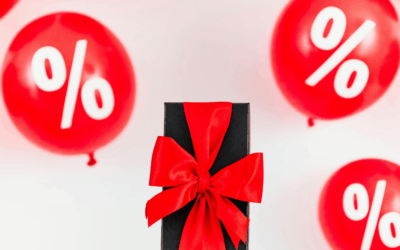In this article:

Deciding whether to go with a fixed or variable home loan is a critical decision that will significantly impact your financial wellbeing for years to come. Understanding the differences between these two types of loans can help you make an informed choice that aligns with your financial goals and lifestyle.
Both types of loan have their own pros and cons and will work well for different financial situations. So let’s break down what you’ll need to know:
Fixed and Variable Loans
Fixed Home Loans
A fixed home loan has an interest rate that remains constant for a predetermined period, usually between one and five years. It has some key features and benefits:
- Predictability: Your monthly repayments remain the same throughout the fixed period, making budgeting easier.
- Protection: You’re shielded from interest rate hikes during the fixed term, which can be especially valuable in a rising interest rate environment.
- Stability: Fixed rates offer financial stability, giving you peace of mind regarding your mortgage payments.
However, fixed home loans also come with some drawbacks:
- Limited Flexibility: Fixed loans often come with restrictions on extra repayments and redraw facilities.
- Break Costs: Exiting a fixed loan early can incur significant penalties, known as break costs.
- Potential Higher Rates: Fixed rates may be higher than variable rates, especially if market interest rates are expected to fall.
Variable Home Loans
A variable home loan has an interest rate that can fluctuate in response to changes in the market interest rates. The key features and benefits involved in this type of loan include:
- Flexibility: Variable loans generally offer more flexibility with features like extra repayments, offset accounts, and redraw facilities.
- Potential Savings: If interest rates fall, your repayments could decrease, potentially saving you money.
- No Break Costs: With variable loans, you typically won’t face hefty penalties for early repayment or refinancing.
However, variable home loans also come with some risks:
- Uncertainty: Your monthly repayments can increase if market interest rates rise, making budgeting more challenging.
- Less Predictable: The fluctuating nature of variable rates adds an element of unpredictability to your financial planning.
Deciding Which is Right for You
Choosing between a fixed and variable home loan depends on your financial situation, risk tolerance, and personal preferences. Here are some factors to consider:
Financial Stability
If you have a stable income and value predictability in your budget, a fixed home loan might be more suitable. Knowing your exact monthly repayments can help you manage your finances more effectively.
Interest Rate Trends
Consider the current interest rate environment and future projections. If interest rates are low and expected to rise, a fixed loan can lock in a low rate. Conversely, if rates are high and expected to fall, a variable loan might offer potential savings.
Flexibility Needs
Think about how important loan features like extra repayments and redraw facilities are to you. If you plan to make additional repayments or need access to these facilities, a variable loan could provide the flexibility you need.
Risk Tolerance
Assess your comfort level with financial risk. If you prefer certainty and want to avoid the stress of potential rate hikes, a fixed loan offers more peace of mind. If you’re comfortable with some risk and want the opportunity to benefit from potential rate drops, a variable loan might be the way to go.
Hybrid Loans
For those who want a mix of stability and flexibility, consider a split loan. This option allows you to divide your mortgage into fixed and variable portions, giving you the best of both worlds.
So… what’ll it be?
Deciding between a fixed and variable home loan is a significant decision that can impact your financial wellbeing for years to come. It pays to take the time to understand the differences and consider your personal circumstances so that you can choose the option that best aligns with your needs and goals.
Remember, you’re not alone in this decision-making process. Consulting with a mortgage broker or financial advisor can provide valuable insights and help you make the best choice for your situation.
Ready to take the next step in your home buying journey? Get in touch with one of our trusted home loan experts today and explore the loan options that can turn your homeownership dreams into reality.



